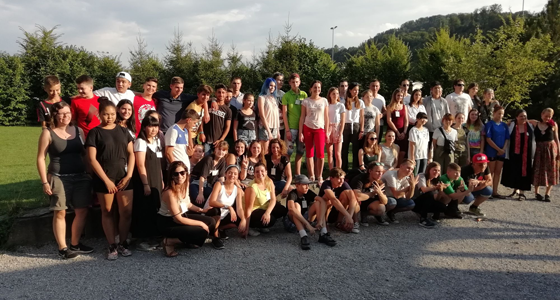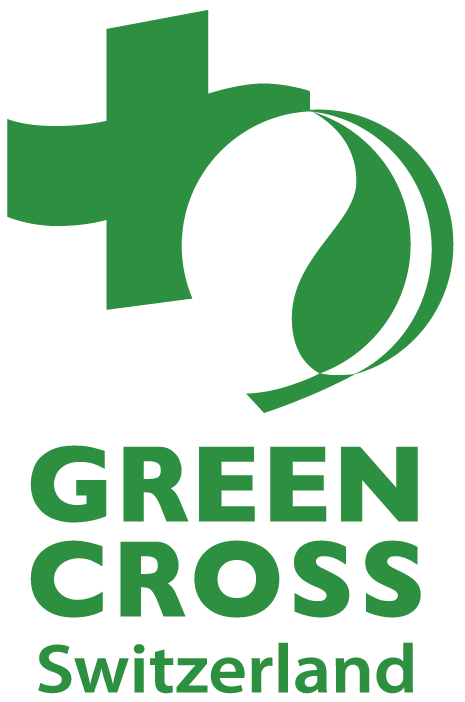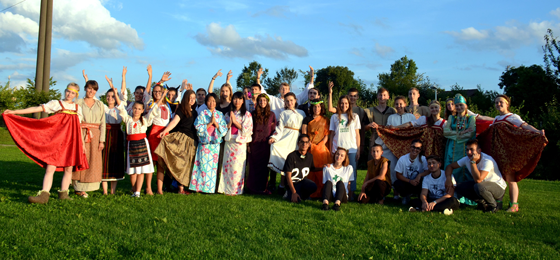25.07.2018
Theater performance on the Earth Charter in Uster, Winterthur, Zurich, Bern, Wimmis and Thun
05.07.2018
Draft treaty for a weapons of mass destruction free zone in the Middle East welcomed
CH-Zurich – 5 July 2018 – At the invitation of Green Cross Switzerland, a round table was held in Zurich from 2 to 4 July 2018 regarding a weapons of mass destruction free zone in the Middle East. Approximately 40 delegates from the Middle East, Australia, Canada, France, Great Britain, Russia, Sweden, USA and Switzerland discussed the course of action to promote a weapons of mass destruction free zone in the Middle East. According to Stephan Robinson, Unit Manager (Water, Legacy), Green Cross Switzerland, and Sharon Dolev, Head of the Israeli Disarmament Movement (IDM), the outcome of the closed meeting has paved the way to introduce initial steps towards a weapons of mass destruction free zone in the Middle East.
Download the full text in PDF (.pdf)
Treaty – Weapons of Mass Destruction Free Zone in the Middle East – June 2018
13.06.2018
6.4 million people are at risk from exposure from uranium mines
CH-Zurich – 13 June 2018 – Based on the results of the study, Green Cross Switzerland is requesting the corporate groups involved in uranium mining in Africa, Australia, Canada and the USA to properly shut down their uranium mining sites according to the polluter-pays principle to ensure that no further decontamination is necessary within the next 1000 years. The professional decontamination and closing of uranium mining sites in the countries of Central Asia requires the support of the international community, as these countries do not have the necessary resources at their disposal.
Download the full text in PDF (.pdf)
20.11.2017
Green Cross projects in Ghana and Burkina Faso involve mercury reduction in artisanal gold mining
14.09.2017
Conventional and chemical munitions must be recovered from the seas
CH-Zurich – 14 September 2017 – After World War II, the allied forces (the USA, the United Kingdom, France and the Soviet Union) took over a total of approximately 300,000 tons of chemical weapons unused by Germany. Thirty-nine percent of these included yperite (mustard gas), 18 percent tabun (a neurotoxin), 11 percent teargas and 9 percent phosgene. At the Potsdam Conference, the allied powers decided to drop these agents of chemical warfare into the Atlantic Ocean at a depth of more than 1000 meters. Regrettably, not all of the parties complied with the agreement, and it is now known that these chemical munitions were dumped in the North and Baltic Seas and in the Mediterranean, some of them at a depth of no more than ten meters. According to the Russian scientist Alexander Korotenko, the chemicals are expected to leak into the sea between 2020 and 2060 because the containers are corroding. If they were released, 16 percent of the chemical substances would suffice to eradicate any form of life in the Baltic Sea.
Download the full text in PDF (.pdf)
13.07.2017
Young people from radioactively contaminated regions come to Switzerland
29.06.2017
Donations for Green Cross Switzerland raised to CHF 13.4 million
26.10.2016
Industrial sources of environmental toxins endangering 200 million people worldwide
CH-Zurich – 26 October 2016 – The Environmental Toxin Report 2016 from the environmental organisations Green Cross Switzerland and Pure Earth, New York, provides information about the world’s ten most dangerous sources of environmental toxins and quantifies the magnitude of the adverse effects on health caused by toxic substances worldwide in DALYs.
Download the full text in PDF (.pdf)


